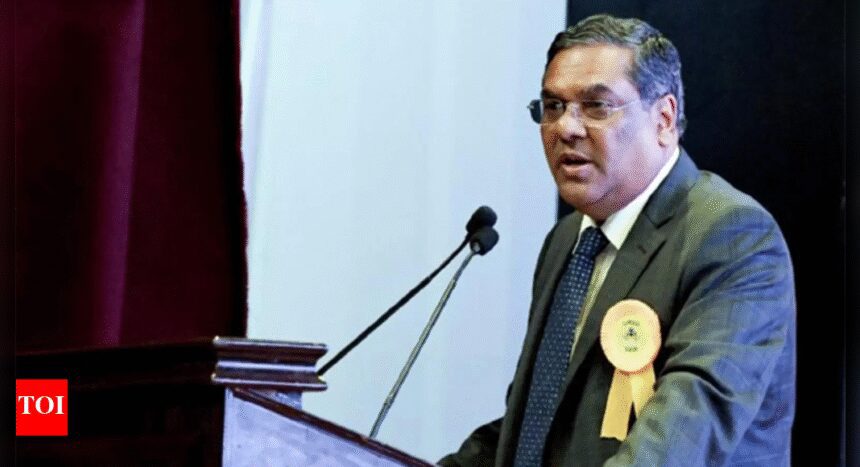NEW DELHI: Former Chief Justice of India, Sanjiv Khanna, remarked on Saturday that not every failure to act in matters with financial implications should be labeled as white-collar crime. He spoke at the “National Conference on White Collar Crime,” organized by the Terapanth Professional Forum.
“White-collar crime is a cliché often heard, yet few truly understand its definition,” Justice Khanna stated, noting that the term was coined in 1939 by a sociologist to describe non-violent offenses committed by individuals in positions of responsibility. He emphasized that such crimes are generally perpetrated by those in positions of trust and authority for personal or organizational gain and are primarily economic in nature.
Justice Khanna elaborated that while white-collar crimes can lead to violence—categorized as red-collar crimes—not all failures in financial matters qualify as white-collar offenses. He categorized financial wrongs into three distinct groups:
-
Crimes motivated by greed or advantage: This includes fraud, embezzlement, insider trading, cybercrime, money laundering, intentional tax evasion, bribery, and corruption.
-
Unintentional wrongdoings: These occur largely due to a lack of awareness or knowledge, without malicious intent.
-
Technical or procedural violations: These may involve failing to obtain prior permissions, filing errors, or compliance oversights resulting from misunderstandings of the law.
Justice Khanna highlighted a significant challenge when the legislature equates first-category white-collar crimes with other wrongdoing types, which can result in disproportionate legal penalties or sentences for actions that may not have been intentional or harmful.
He referred to ongoing discussions regarding the reduction of offenses under the Income Tax Act and pointed out that white-collar crimes—especially cyber offenses—are on the rise. He stressed that public awareness is crucial in combating these crimes, urging individuals to be informed about potential risks.
“The reality is that there’s nothing stopping a victim from approaching law enforcement regarding white-collar crimes,” he stated, questioning the legal profession’s accountability in reporting clients involved in money laundering.
Justice Khanna expressed hope for a future where taxpayers consult accountants and lawyers to determine their rightful tax obligations rather than seeking guidance on reducing or evading taxes. He noted that fostering a culture of transparency and integrity could spark significant change.
He concluded by acknowledging the fear many have when approaching law enforcement, calling it a “Herculean task” often resulting in harassment. This fear, he argued, is exploited by cyber criminals. “People should feel empowered to report crimes without the worry of increased harassment or adverse consequences,” he advocated.










